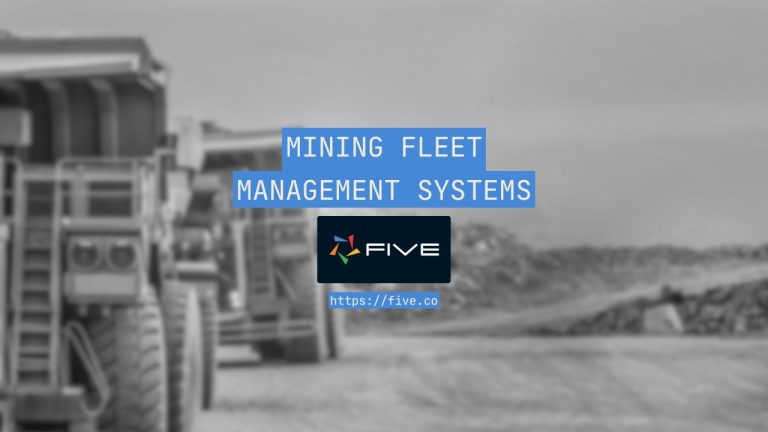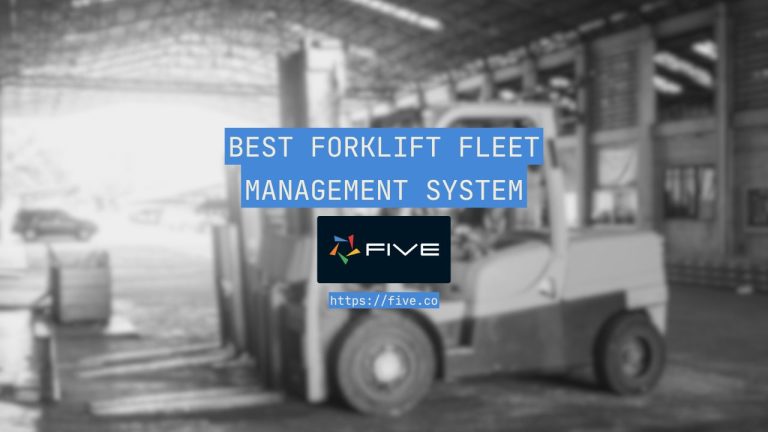ECS vs Kubernetes: A Complete Comparison

Cost Comparison and Additional Considerations in ECS vs Kubernetes
ECS and Kubernetes are two popular container orchestration platforms, but they differ in terms of cost, learning curve, community support, and features. In this blog post, we will compare the cost of ECS and Kubernetes and discuss some additional considerations to help you choose the right platform for your needs.
What is ECS?
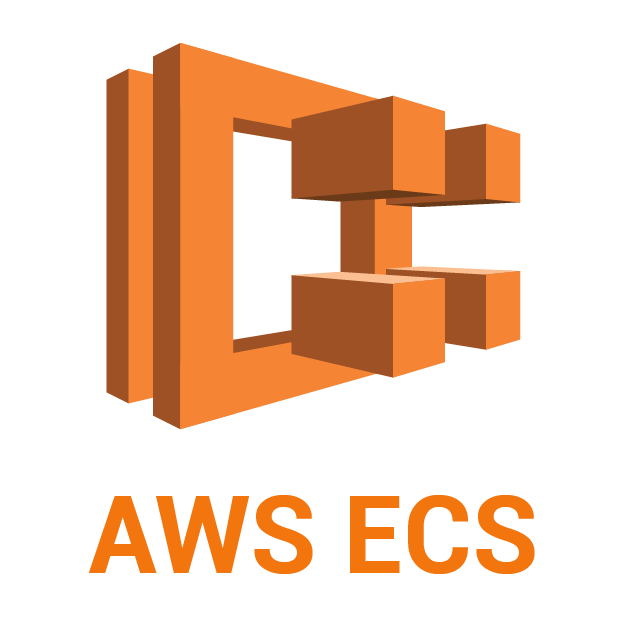
Amazon Elastic Container Service (ECS) is a fully managed container orchestration service that helps you to deploy, manage, and scale containerized applications. ECS provides a simple way to run Docker containers on AWS, without the need to set up and manage your own container infrastructure.
ECS clusters are made up of EC2 instances, which are the underlying compute resources that your containers run on. ECS also provides a variety of features to help you manage your containerized applications, including:
- Task definitions: Task definitions define the containers that make up your application and the resources they need.
- Services: Services are a way to expose your containerized applications to the outside world.
- Load balancing: ECS can automatically load balance your applications across multiple EC2 instances.
- Auto-scaling: ECS can automatically scale your applications up or down based on demand.
- Logging and monitoring: ECS provides a variety of logging and monitoring options to help you track the performance of your containerized applications.
What is Kubernetes?

Kubernetes is an open-source container orchestration platform that automates many of the manual processes involved in deploying, managing, and scaling containerized applications. Kubernetes provides a declarative approach to container orchestration, which means that you tell Kubernetes what you want, and Kubernetes takes care of the rest.
Kubernetes clusters are made up of a variety of components, including:
- Master nodes: Master nodes control the cluster and manage the scheduling of containers.
- Worker nodes: Worker nodes are where your containers run.
- API server: The API server is the main interface to Kubernetes. You can use the API server to manage your cluster and your applications.
- Controller manager: The controller manager runs a variety of controllers that manage the state of your cluster and your applications.
- Scheduler: The scheduler is responsible for scheduling containers to worker nodes.
Table of Contents
High-Level Overview of the Differences Between ECS and Kubernetes
ECS and Kubernetes are both powerful container orchestration platforms, but they have different strengths and weaknesses.
Here is a high-level overview of the key differences between ECS and Kubernetes:
| Feature | ECS | Kubernetes |
|---|---|---|
| Vendor lock-in | Yes | No |
| Managed service | Yes | No |
| Flexibility | Less | More |
| Control | Less | More |
| Community support | Large | Very large |
| Learning curve | Lower | Higher |
ECS is a good choice for teams that:
- Are new to container orchestration
- Want a managed service from AWS
- Need a simple and easy-to-use platform
Kubernetes is a good choice for teams that:
- Need more flexibility and control
- Want to use a platform that is supported by multiple cloud providers
- Have the expertise to manage their own container infrastructure
Core Features
Container Orchestration
Both ECS and Kubernetes provide core container orchestration features, such as container scheduling, load balancing, and auto-scaling. However, Kubernetes offers more flexibility and control in how these features are implemented.
Deployment and Scaling
ECS and Kubernetes both provide simple ways to deploy and scale containerized applications. ECS uses task definitions and services to define and manage your applications, while Kubernetes uses pods, deployments, and services.
Load Balancing
ECS and Kubernetes both provide load balancing features to distribute traffic across multiple containers. ECS uses Elastic Load Balancing (ELB), while Kubernetes uses kube-proxy.
Service discovery
ECS and Kubernetes both provide service discovery features to help containers find each other. ECS uses the Elastic Container Registry (ECR) as its default service registry, while Kubernetes uses etcd.
Service Mesh
ECS does not have a built-in service mesh, but it can be integrated with third-party service meshes such as Istio and Linkerd. Kubernetes has a built-in service mesh called Istio that provides features such as load balancing, service discovery, and fault tolerance.
Auto-Healing
ECS and Kubernetes both provide auto-healing features to restart failed containers. ECS uses a health check mechanism to identify and restart failed containers, while Kubernetes uses liveness and readiness probes.
Storage Management
ECS provides a simple way to manage persistent storage for your containers using Elastic Block Store (EBS) volumes. Kubernetes offers more flexibility in how persistent storage is managed, with support for a variety of storage providers and storage types.
Networking
ECS and Kubernetes both provide networking features to connect your containers to each other and to the outside world. ECS uses the Amazon Virtual Private Cloud (VPC) for networking, while Kubernetes uses a variety of networking plugins, such as Calico and Weave.
Security
ECS and Kubernetes both provide a variety of security features to help protect your containerized applications. ECS integrates with AWS Identity and Access Management (IAM) to provide role-based access control (RBAC) for your applications. Kubernetes also provides RBAC, as well as other security features such as network isolation and pod security policies.
Observability and Logging
ECS and Kubernetes both provide observability and logging features to help you track the performance and health of your containerized applications. ECS integrates with AWS CloudWatch for logging and monitoring, while Kubernetes provides a variety of logging and monitoring tools, such as Prometheus and Grafana.
Ecosystem and support
ECS and Kubernetes both have large and active ecosystems of tools and plugins. Kubernetes has a particularly large ecosystem, thanks to its open-source nature. ECS and Kubernetes also have large and active communities that provide support and resources to users.
Use Cases
Small-scale projects
ECS is a good choice for small-scale projects because it is easy to use and manage. It also provides a variety of features that can help you to deploy and scale your applications quickly and easily.
Large-scale projects
Kubernetes is a good choice for large-scale projects because it offers more flexibility and control than ECS. It also has a larger ecosystem of tools and plugins, which can help you to manage your applications more effectively.
Multi-cloud projects
Kubernetes is a good choice for multi-cloud projects because it is supported by multiple cloud providers. This means that you can deploy your applications to the cloud provider of your choice, or you can deploy them to multiple cloud providers.
On-premises projects
Kubernetes can be used to deploy and manage containerized applications on-premises. However, it is more complex to set up and manage than ECS.
Here are some specific examples of use cases for ECS and Kubernetes:
- ECS: Small-scale web applications, microservices, batch processing jobs, and serverless applications.
- Kubernetes: Large-scale web applications, microservices, batch processing jobs, machine learning applications, and cloud-native applications.
ECS is a good choice for teams that are new to container orchestration or that want a managed service from AWS. Kubernetes is a good choice for teams that need more flexibility and control, or that want to use a platform that is supported by multiple cloud providers.
ECS Pricing
ECS is a free service to use, but you will need to pay for the underlying AWS resources that your ECS cluster uses, such as EC2 instances and EBS volumes. The cost of your ECS cluster will depend on a number of factors, including the size and type of EC2 instances you use, the amount of EBS storage you need, and the network traffic generated by your applications.
Here are some examples of the on-demand hourly pricing for ECS clusters using t2 instances:
| Instance Type | vCPUs | RAM (GiB) | CPU Credits/hr | On-Demand Price/hr* |
|---|---|---|---|---|
| t2.nano | 1 | 0.5 | 5 | $0.0058 |
| t2.micro | 1 | 1.0 | 10 | $0.0116 |
| t2.small | 2 | 2.0 | 20 | $0.0232 |
| t2.medium | 2 | 4.0 | 40 | $0.0464 |
| t2.large | 2 | 8.0 | 80 | $0.0928 |
| t2.xlarge | 4 | 16.0 | 160 | $0.1856 |
| t2.2xlarge | 8 | 32.0 | 320 | $0.3712 |
You can use the AWS Pricing Calculator to estimate the cost of your ECS cluster.
Kubernetes Pricing
Kubernetes is an open-source platform, so there is no direct charge for using it. However, you will need to pay for the underlying infrastructure that you use to run Kubernetes.
If you are running Kubernetes on AWS, you will need to pay for EC2 instances, EBS volumes, and EBS snapshots. You may also need to pay for other AWS services, such as Elastic Load Balancing (ELB) and Route 53.
The cost of your Kubernetes cluster will depend on a number of factors, including the number of nodes in your cluster, the size and type of servers you use, the amount of storage you need, and the network traffic generated by your applications.
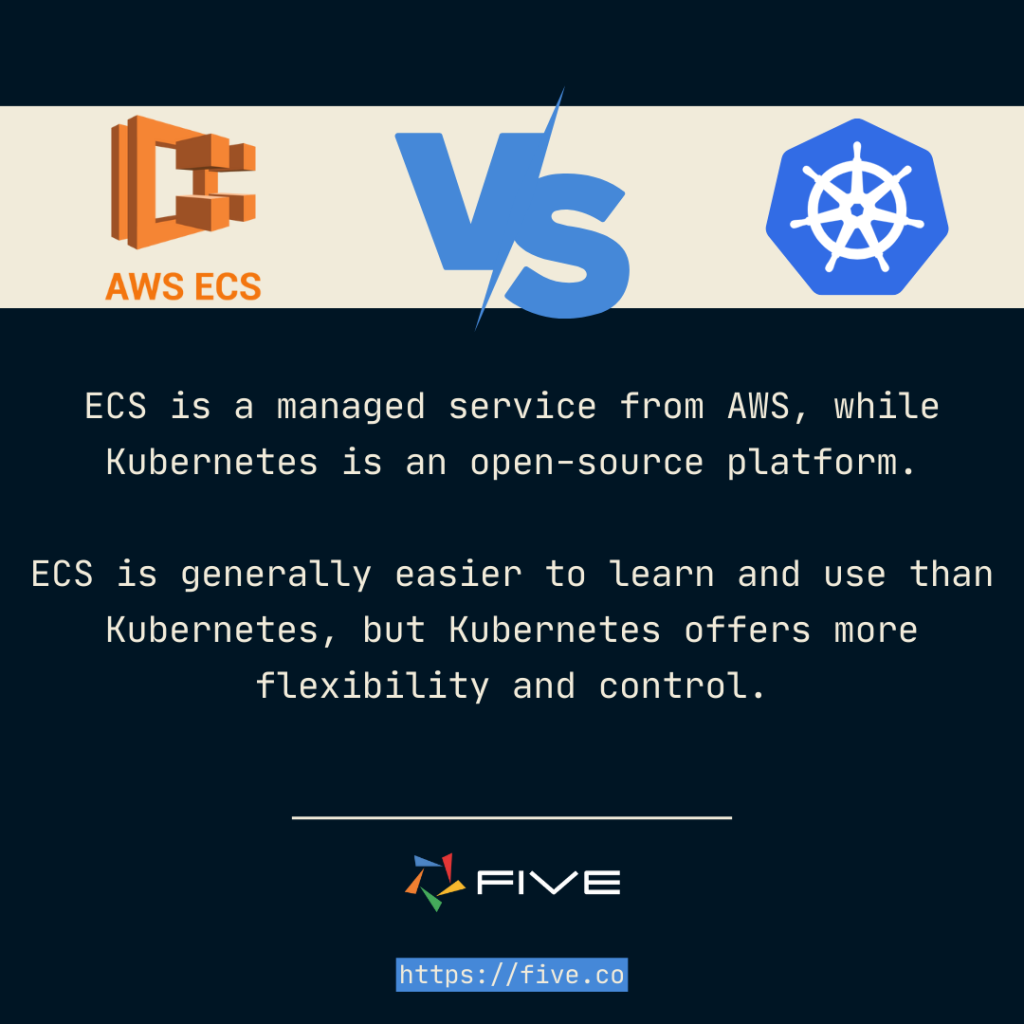
Comparison of ECS and Kubernetes Pricing
In general, ECS is a more cost-effective option for small and medium-sized projects. This is because ECS is a managed service, so AWS takes care of the underlying infrastructure and management of your ECS cluster.
However, Kubernetes can be a more cost-effective option for large and complex projects, especially if you are using reserved instances or running Kubernetes on-premises. This is because Kubernetes offers more flexibility and control than ECS, which can help you to optimize your resource usage.
Additional Considerations in ECS vs Kubernetes
In addition to the cost of the underlying infrastructure, there are a few other factors to consider when comparing the cost of ECS and Kubernetes:
- Learning curve: ECS is generally easier to learn and use than Kubernetes. This means that you may need to invest in training or hire Kubernetes experts, which can add to the cost.
- Vendor lock-in: ECS is a proprietary AWS service, while Kubernetes is an open-source platform. This means that you are locked into AWS if you choose to use ECS. However, Kubernetes can be deployed on any cloud provider or on-premises, which gives you more flexibility.
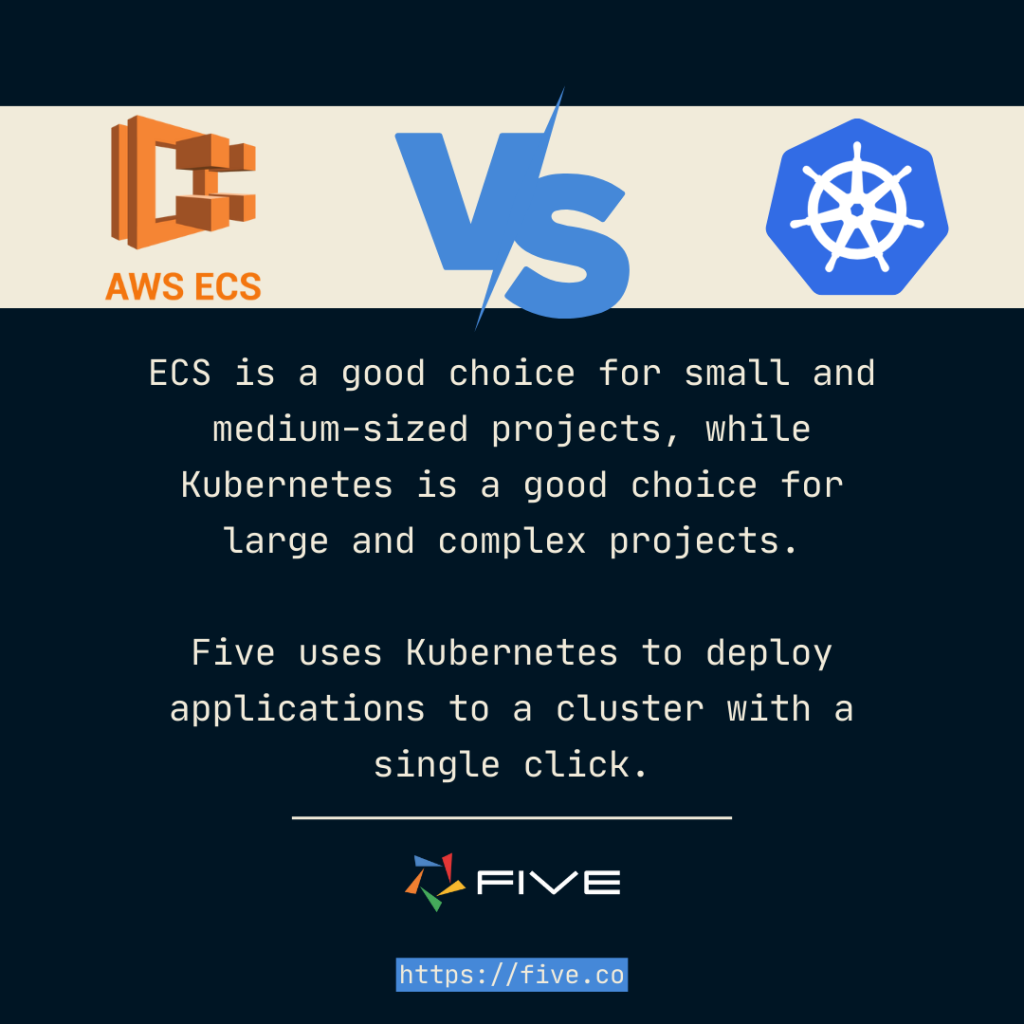
Five and Kubernetes
When you deploy an application to Five, Five uses Kubernetes to create a Docker container image of your application and then deploys that container image to a cluster. Five automatically provisions and manages the resources needed to run your application, such as compute, storage, and networking.
Five also provides a number of features that make it easy to deploy and manage your applications, such as:
- One-click deployment: Five allows you to deploy your application to a cluster with a single click.
- Pre-configured environments: Five provides pre-configured development, testing, and production environments for your applications.
- Automatic backups and disaster recovery: Five automatically backs up your your applications and data, and provides disaster recovery capabilities to help you recover from any unexpected events.
Overall, Five’s use of Kubernetes provides a number of benefits for developers, such as scalability, availability, security, and ease of use.
